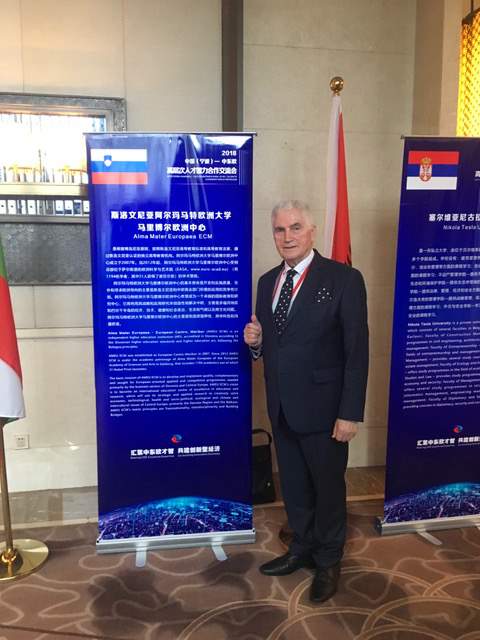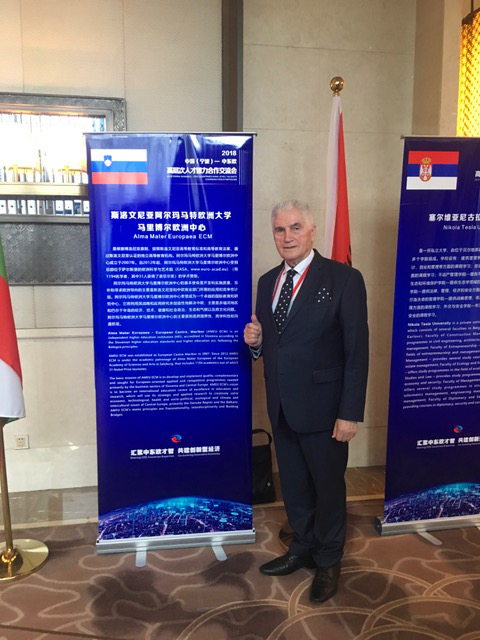
ALMA MATER EUROPAEA ECM AT INTERNATIONAL CONFERENCE IN CHINA

On invitation of Chinese universities and government institutions, prof. dr. Ludvik Toplak, President of Alma Mater Europaea ECM delivered a brief presentation at the international conference on technological and economic cooperation between China and the countries of Central and Eastern Europe.
This major international conference was dedicated to the importance of innovation in international knowledge transfer. Prof. Toplak spoke about the importance of pluralism and international competition for effective, relevant, high quality and reasonable higher education. He emphasized that the development of academic cooperation, the exchange of knowledge and experience between Europe and China is necessary to harmonize higher education systems at Euro-Asian level, as Europe has done with the Bologna system within Europe. He particularly emphasized the importance of protecting intellectual property, because knowledge is a perishable commodity that requires high levels of investment and personal incentives.
In the second presentation, dedicated to economic and technological cooperation and the importance of innovation and talent, prof. dr. Ludvik Toplak spoke about pluralism and competition in education, being a prerequisite for an innovative and competitive economy. The best example of this is China, which in two decades has climbed to the top of innovative countries in the world, and thus to the international competitiveness of the economy through its internal competitiveness in education and science in terms of technological innovation. He outlined the possibilities and potential of the European academic sphere for the joint development of an innovative economy in the case of Alma Mater Europaea.





